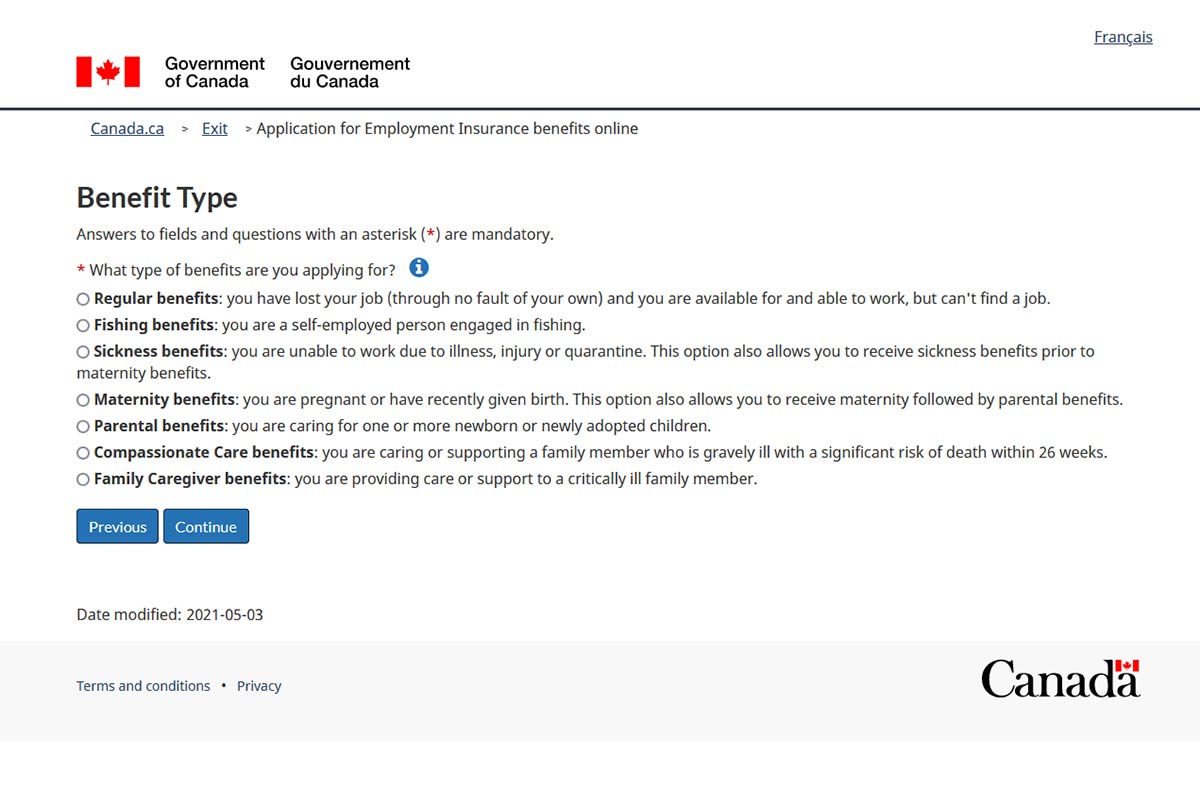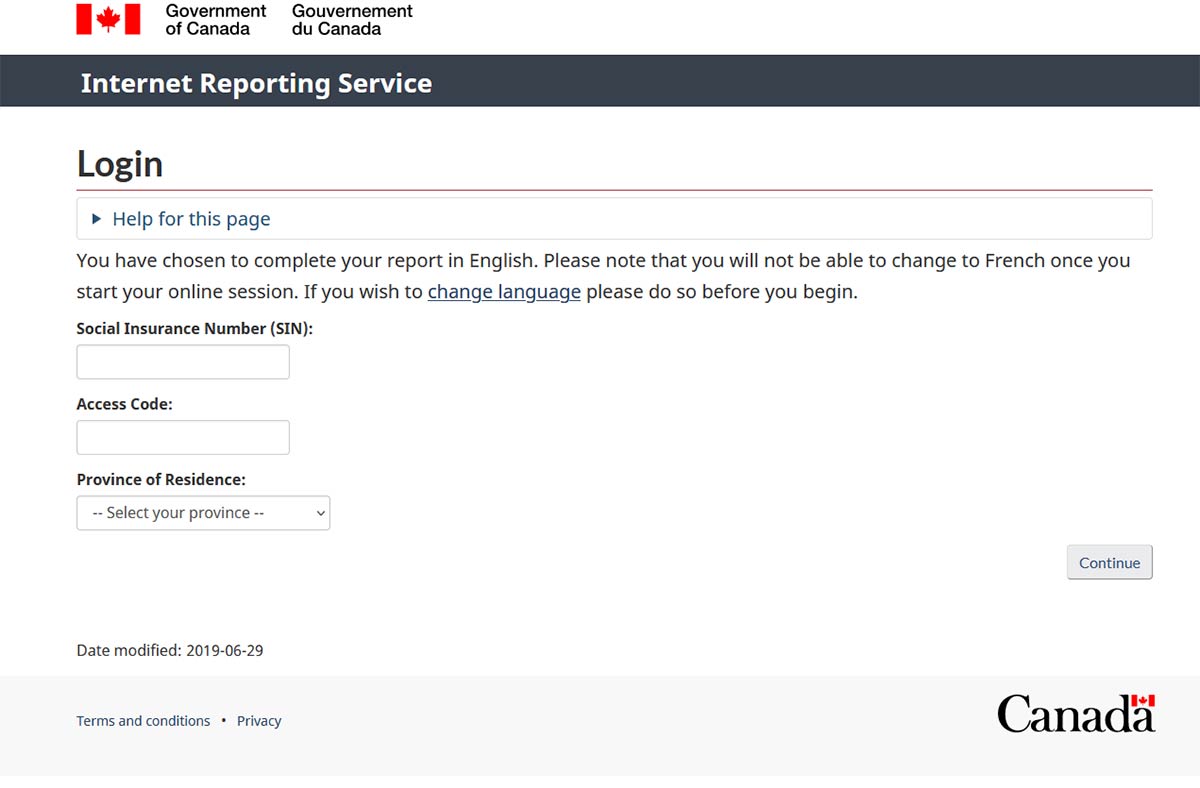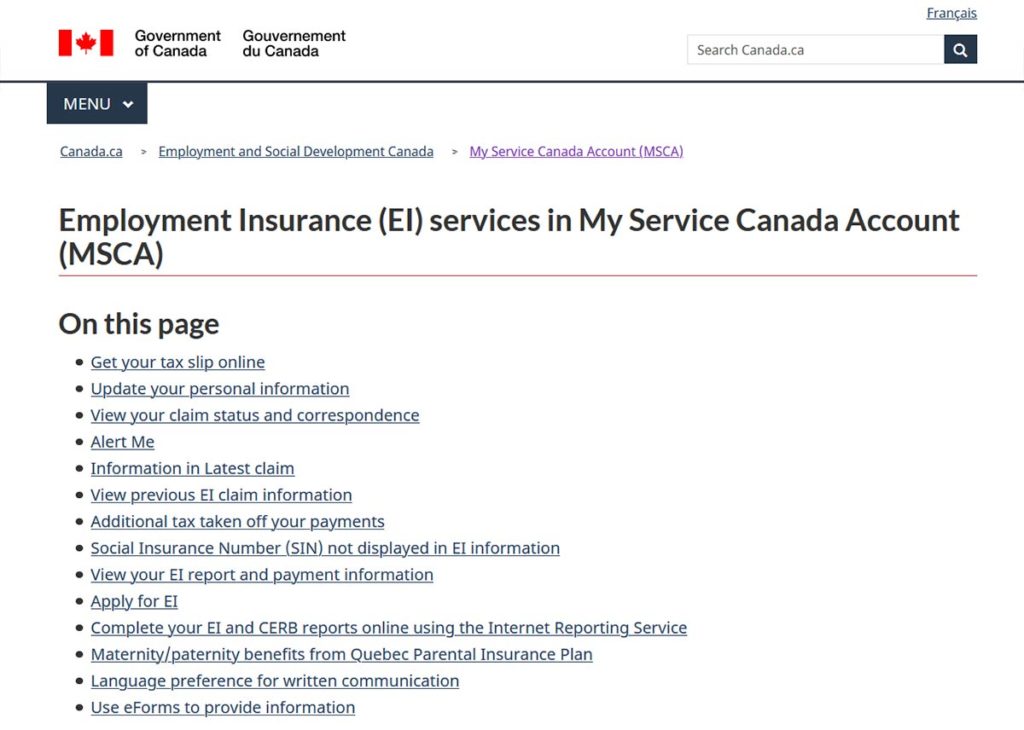Have you recently lost your job? Are you looking for temporary financial assistance?
If so, you've come to the right place. You're here to learn about employment insurance (EI).
EI is an unemployment insurance program that helps Canadian Citizens and Permanent Residents just like you get back on their feet. To learn more about what it is, how to apply for it, and more, keep reading. We have everything you need to know.
What Is Employment Insurance (EI)?
As we mentioned, Employment Insurance (EI) is an unemployment insurance program in Canada. It allows Canadian citizens or Permanent Residents (PR) who have recently lost their job to receive financial assistance. Although this assistance is temporary, it's beneficial while these people are looking for new jobs.
The EI provides relief and is a vital replacement for primary income for several categories of workers, such as:
- Person who lost their jobs because of COVID-19 and/or calamities
- Person who can’t work due to sickness or injury
- Person who can’t work due to pregnancy
- Person who took leave to care for a newborn or adopted child
- Person with a critical illness
- Person who are a caregiver for a critically ill family member
- Person who were employed in insurable employment
- Person who haven’t had a salary for 7 consecutive days in the last 52 weeks
- Person who can prove they’ve been actively seeking work
In fact, EI also provides services to help unemployed individuals find a new job.
Employment insurance can also apply to individuals who aren't able to work because of a personal or family illness. It can also apply to those who are caring for young children at home.
How Much Does EI Pay per Month?
In general, employment insurance will pay you 55% of your weekly earnings each week. However, there is a maximum.
Currently, the maximum yearly payout is CA$51,300. This comes out to CA$543 per week.
How Long Does EI Last?
You can receive employment insurance payments between 14 and 45 weeks. This depends on several factors:
- Why you've applied for employment insurance
- What the unemployment rates in your area are
- The amount of time that you've worked within the past 52 weeks
- The amount of time since you last claimed employment insurance
If you're unsure how long you'll have benefits, you can talk to an accountant. Or, you can wait until you receive word after applying for employment insurance.
How to Apply for EI?
If you've lost your job, you should apply for employment insurance right away. You don't have to wait for your Record of Employment (ROI) letter to do this.
You have until four weeks from the date of your termination to apply for benefits. The longer you wait, the longer you'll go without EI payments.
If you're signing up to receive EI benefits, you can do so online or in person. Before you start the application process, you should gather the following information:
- Your SIN
- Your mother's maiden name
- Your mail address
- Your residential address
- Your banking information in order to sign up for the direct deposit option
- Information about all employers that you've had for the past 52 weeks
- If you quit any job in the past 52 weeks
- If you were fired from any job in the past 52 weeks
- The dates and earnings for each of the highest-paid weeks in the last 52 weeks
How Do I Apply for EI Online?
Luckily, the application for employment insurance is online. So, you can fill out all of the necessary information in the comfort of your own home.
You should note that the process takes about an hour to complete. And, the Service Canada website gives you step-by-step instructions along the way. So, you'll know how to fill out every part of the form as you go.
If you have any questions or concerns, you can call Service Canada at 1-800-206-7218.
What Are the Requirements for EI?
In order to qualify for employment insurance in Canada, you must meet a few requirements. The online application will address these as you're filling it in.
First, you must have worked the required number of hours for your area. Usually, this lies between 420 and 700 hours per year. But, you can check the unemployment rate in your area to find out the right number of hours.
You must also have made payments into the EI program. Normally, your employer deducts these from your paycheque automatically.
At the time of your application, you must have been without employment or pay for seven days in a row.
If you meet all of these criteria, then you are eligible to receive employment insurance payments.
What Makes Me Ineligible for Canadian Employment Insurance?
On the other hand, there may be a few reasons that could be keeping you from receiving these payments. Here are some of the most common reasons for being ineligible for employment insurance payments:
- You quit without a good reason
- Your employer fired you for a good reason
- You have not worked for the amount of time required in your area
- You have not paid into the EI program
For those first two criteria, it's important that you make your case. The EI application will ask about the circumstances involving your quitting or your employer firing you. There, you can convince them that you quit for a good reason or were fired for a poor reason.
EI Reporting Online and Login
Before we dig deeper on the procedures about Employment Insurance reporting let discuss first what it is.
EI Reporting is the step that the government required for all active Employment Insurance claimants for them to continue receiving the benefits. While you're receiving employment insurance payments, you have to report every two weeks (or bi-weekly). This is to determine whether or not you're still eligible for employment insurance benefits.
If you remain eligible, you will keep receiving payments like before. If not, your benefits will stop.
For each week of the report you need to do the following:
- Record dates and hours that you worked
- Record earnings before deductions
- Provide contact information for employers
- Enter hours spent at school or in a training course
- Indicate whether you were available for work
- Report other money earned during the time period
We recommend keeping track of this information as you go. It's easier than trying to remember days or even weeks later.
How to Submit Reports
When you initially applied for benefits, Service Canada mailed you a benefit statement. This gave you a four-digit access code. In order to submit your reports, you'll need this code as well as your social insurance number (SIN).
You can submit your reports using the online reporting tool.
How Do I Talk to a Real Person at Service Canada?
If you're without Internet service or you'd rather speak with a real person, you can call the Telephone Reporting Service at 1-800-531-7555.
You can process your report over the phone using that number. And, if they need more information like your banking details, they'll work with you to help you out.
How Do I Check My EI Status?
If you're filling out your reports as you should, you shouldn't run into any problems. But, there may come a point when you don't qualify for benefits anymore.
If you want to check your EI status to see whether or not you're still receiving benefits, you can go to your My Service Canada account. There, you can look at your claim, update information as needed, and register for the direct deposit of EI funds.
If you're ever unsure about your EI status, this is the place to go.
How Long Does EI Last?
EI benefits can last anywhere from 14 to 45 weeks. But, this could be cut shorter if you're no longer eligible for benefits.
You should continue to fill out your reports and check your My Service Canada account regularly. This will ensure that you're getting the benefits that you are entitled to.
Does EI Stop Automatically?
Based on your reports, the government will decide whether or not you'll continue getting benefits. If you're still eligible, you'll still receive payments. If you're not eligible anymore, the payments will automatically stop.
If you fail to fill out your reports, the government will assume that you're no longer eligible. In turn, they'll stop sending payments.
Can I Extend My EI Benefits?
You may be eligible for an extension of the benefit period. However, this extension does not change the total number of weeks that you are paid.
Here are some common reasons that people may ask for an extension of benefits:
- They were confined in prison or a similar institution
- They were in receipt of earnings because of severance from their employer
- They were in receipt of workers compensation due to injury or illness
If you believe that you deserve an extension of benefits, you should contact the employment insurance program.
How Do I Know How Long My EI Will Last?
In order to find out how long your employment insurance benefits will last, you need to apply for them first. Per their calculation, the government can decide how long you should receive these payments for.
This calculation is based on your past employment history and the unemployment rate in your area.
The best thing you can do is be as truthful as possible in filling out the application. The more information they have, the better.
Getting Financial Resources in Order
Depending on your personal situation, you may or may not be eligible to receive employment insurance benefits. Getting EI benefits will help you get back on your feet. But, unfortunately, not everyone is eligible for them if they don't meet the eligibility criteria. So make sure you follow our guide to clarify your situation.







